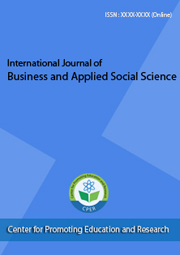current
Table of Contents
Articles
Author(s): MF. Arrozi Adhikara*; Maslichah; Nur Diana; Muhammad Basyir
Abstract:
Tax compliance is an issue that needs to be resolved by the government to ensure an increase in revenue, so it must develop taxpayer attitudes and awareness towards tax compliance. The purpose of the study was to obtain empirical evidence of the effect of tax knowledge, tax sanctions, and the ability to pay taxes on tax compliance mediated by awareness of paying taxes. The research design uses explanatory causality with the type of hypothesis testing, surveys for data collection, and the data source is primary. The research population is all individual taxpayers (WPOP) who have a Taxpayer Identification Number (NPWP) at the West Jakarta DJP Regional Office in DKI Jakarta Province. The sampling technique is accidental sampling. The research sample is 130 taxpayers (WPOP). The unit of analysis is individual. The time horizon is a cross-section--data analysis using path analysis. The results showed that knowledge of taxation, tax sanctions, and ability to pay taxes partially affected the awareness of paying taxes; knowledge of taxation, tax sanctions, and ability to pay taxes partially affects tax compliance. The research findings show that during the COVID-19 pandemic, taxpayers are pretty aware of paying taxes to comply with tax law regulations according to their abilities by functioning as a mediator to improve tax compliance.






